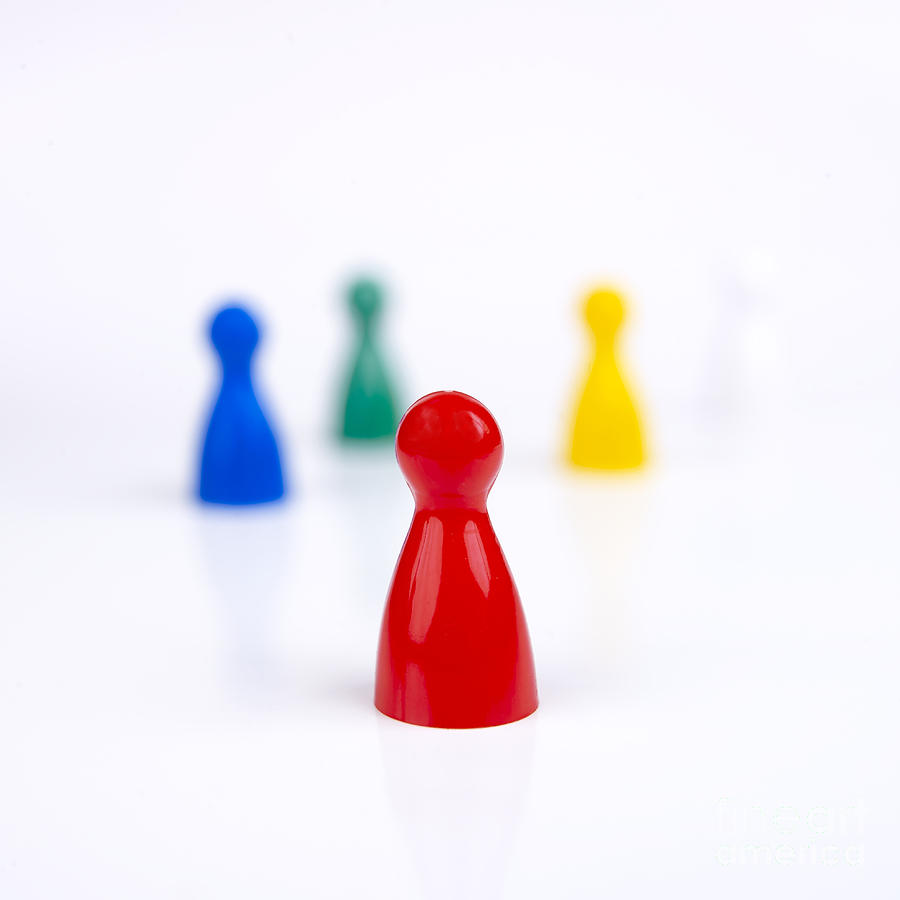Below are elements that create interaction quality and system growth in games. They are known as the game's system dynamics and help engross the player through interactivity.
Objects
Objects are the basic building blocks of a game. They can be both physical and abstract. They are defined by their properties, behaviours, and their interactions with other objects. A few examples of objects are:
- game pieces
- in-game concepts
- players
- player representations
- areas/terrain
 These examples can be used in any game. Whether its digital or a physical game (like a board game) these objects will be featured. In a board game like Monopoly people will use game pieces like money to buy and sell properties in the game. In a game like Zelda, the player will traverse different areas and terrain to find items like the hook shot which can be used to reach new destinations in the game.
These examples can be used in any game. Whether its digital or a physical game (like a board game) these objects will be featured. In a board game like Monopoly people will use game pieces like money to buy and sell properties in the game. In a game like Zelda, the player will traverse different areas and terrain to find items like the hook shot which can be used to reach new destinations in the game.Properties
Properties are what make up the attributes and qualities of the objects. An example of properties in a physical game would be through chess. Each player controls an amount of objects. The things that make these objects more dynamic is their properties. The properties in a chess game would be things like the colour the player is playing as (black or white). It could also be the rank of each piece (knight,king,pawn,etc.) An example of properties in a digital game would be weapons and armour in Warcraft. A player might have the "sword of strength" for example. This sword is an object in which the player can swing and attack but its properties are the stats it gives, like "+2 attack" or "+40hp" .
Behaviours
Behaviours are potential actions in a state. The more behaviours the less predictability in the game. To use the chess pieces as an example again, each object behaves in its own unique way. For example, the knight can only move in an L shape on the board where the queen can move in any direction it desires. Behaviours also restrict what an object can do. In chess, if the pawn gets to the end of the board it must be switched to another type of piece. Something important to remember is that more complexity doesn't always create a more enjoyable player experience.
Relationships
Relationships are essential for creating a system in a game. Relationships can be expressed as things such as numerical values on a card or locations on a board game. They are determined by chance and rule sets. To get a picture of relationships think of a blank deck of cards. Do they have any meaning? Do they create a game? Its only when you add faces and numbers to them do they begin to create a game. You then apply rules to these cards like "if you draw a 2, pick up 2". That element of picking up more cards shows the relationships the cards have with each other.
Economies
Economies are exchanges of resources and in game goods. Economies must have items in a controlled environment that create trade opportunities for each player. Prices depend on market controls. An easy example is the game monopoly itself as a whole. There are only 28 properties in total. Depending on how many a person has the value goes up on them. If there is a player who controls a lot of these properties, players may bid higher on them as usual to stop the other players from getting more power than them.
System Dynamics are crucial to making a game diverse but also making it stable and completely playable.